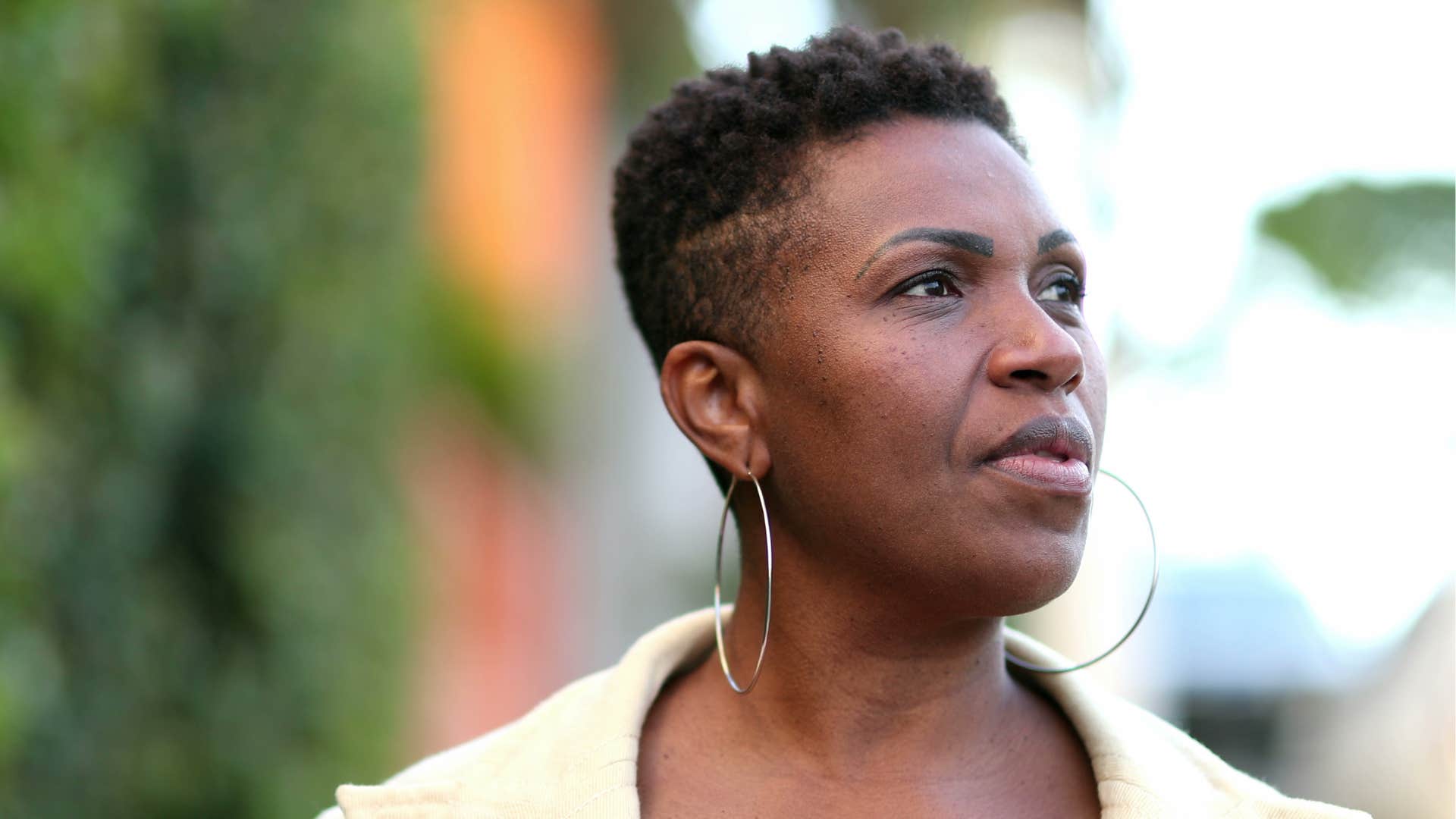10 Quiet Behaviors Of Women Who Have No Close Friends
How you choose to live your life inadvertently affects your inner circle.
 Perfect Wave | Shutterstock
Perfect Wave | Shutterstock Everyone is equally deserving of companionship and connection, yet some people find it difficult to cultivate the healthy close friendships that they're yearning for. Whether it be societal pressures, inescapable self-doubt, or simply time, there are some quiet behaviors of women who have no close friends and struggle with the accompanying loneliness of their personal time.
According to research from Colorado State University, it's not just women that are struggling with a "friendship crisis," but a great deal of people across age demographics. Nearly 51% of people report difficulty making friends, with 40% longing for more closeness in their daily lives.
Here are 10 quiet behaviors of women who have no close friends
1. They share a lot of their life on social media
 Dragana Gordic | Shutterstock.com
Dragana Gordic | Shutterstock.com
Without the listening ear and venting of a healthy best friend or close relationship, women tend to resort to online communities and social media to simulate the connection they're yearning for. With private stories, random accounts, and various platforms, they can share their emotional turmoil and day-to-day struggle, and feel like they're bonding with others, whether it's reaching them or not.
While they might fill a temporary void, a study from the Journal of Affective Disorders argues that online social connections, without aligned in-person relationships, tend to feed into a toxic spiral of loneliness that not only affects mental health, but promotes isolating behaviors that further inhibit these women from making close friends.
2. They're people-pleasers
 Monkey Business Images | Shutterstock.com
Monkey Business Images | Shutterstock.com
The true nature of a healthy friendship is open and honest communication, like any other relationship, but when one friend or partner resorts to "keeping the peace" instead of embodying that honesty and truthfully sharing their feelings, the entire connection is sabotaged. You can never truly bond with someone, share the same experiences, or grow a balanced friendship when you're holding back emotions or protecting someone else's energy.
Women who constantly seek external validation from friends, partners or family never truly embody their authentic self or identity, keeping them from meeting people that make them feel comfortable, safe, and celebrated.
3. They tend to overshare with strangers
 shurkin_son | Shutterstock.com
shurkin_son | Shutterstock.com
While experts suggest "oversharing" is a behavior associated with many mental health disorders, anxiety, and loneliness, it's also one of the quiet behaviors of women who have no close friends. Without the structure of support they need to heal, vent, and express their vulnerabilities, they tend to overflow when someone gives them a listening ear.
By learning personal boundaries and staying present in conversations, these women can protect themselves from oversharing with people who don't appreciate or celebrate their vulnerability, instead pouring that energy into their own introspection and healing process.
4. They're unhealthily committed to work relationships
 insta_photos | Shutterstock.com
insta_photos | Shutterstock.com
While studies like one from the Journal of Vocational Behavior agree that there are some benefits to workplace friendships, from connection, to stress relief, and shared experience, they can also contribute to a sense of isolation that's prompted by unhealthy work-life balance and toxic boundaries.
When they're committed to work, not just for money or a sense of purpose, but for the relationships they've cultivated with others, that can urge employees to sacrifice their well-being, physical health, and emotional stability for the sake of productivity or projects. It's not just a behavioral symptom of having no close friends, but a cause as well.
5. They ruminate in nostalgia from the past
 Bricolage | Shutterstock.com
Bricolage | Shutterstock.com
According to social worker Joslyn Jelinek, nostalgia has the power to evoke equally empowering and comforting feelings in many people, but it's also influential in sparking depressive feelings and sadness.
Especially in people who have lost friends or are experiencing loneliness, nostalgia can urge them to ruminate in those feelings of longing, feeding into a toxic cycle of wanting friends, reflecting on old ones, and not being able to reclaim or fulfill those same feelings again.
6. They struggle with vulnerability and expressing emotions
 DedMityay | Shutterstock.com
DedMityay | Shutterstock.com
Without close friends to lean on for emotional support, many women without those friends will resort to not sharing their emotions at all, defaulting to a numb sense of composure that keeps them from being able to truly connect with new people.
As their unresolved emotions, traumas, and repressed feelings continue to ruminate, it only isolates them further, as the CPTSD Foundation argues, disconnecting them from their friends and potential new connections.
7. They're controlling
 Fast-stock | Shutterstock.com
Fast-stock | Shutterstock.com
According to psychologist Irene S. Levine, women who struggle to maintain healthy close friendships in their lives tend to be equally self-serving and controlling. Whether it be a symptom of not having friendships or the cause, they grasp onto control in their lives as a means to soothe the anxiety of their daily life.
If they can control their daily lives, from conversations to their work life, they don't have to worry about being surprised, being disappointed, or not showing up for the people in their lives the right way. It's a means for shifting blame and not taking accountability that disconnects them from connections and relationships in their lives.
8. They're overly competitive
 garetsworkshop | Shutterstock.com
garetsworkshop | Shutterstock.com
According to a 2013 review article, many women are taught and pressured to compete with each other in a self-preserving way to make themselves look more attractive. It's this ingrained societal pressure and toxic standard of external validation that still drives many women and keeps them from maintaining close healthy relationships.
Similarly, as psychologist Noam Shpancer writes, many women are inherently competitive with each other because of internalized misogyny — they view men as the prize and aren't afraid to battle with other women to "win" their validation, recognition, and respect.
While these ideals and stereotypes are being largely dismantled in many mainstream discussions, they're impossible to ignore, as they're still deeply ingrained in the collective psyche of many women, communities, and institutions.
9. They're overcritical of others
 shift drive | Shutterstock.com
shift drive | Shutterstock.com
Are you constantly concerned about ending relationships or navigating "falling outs" with various friends? Is it becoming a trend that you only have a close friend for nearly two years and then suddenly you're alone again? Sometimes, it's introspection that women without close friends need to adopt, as they can be overly critical of the relationships in their lives.
Growing resentful of unaddressed behaviors in their friends, they sacrifice open communication by ending friendships over time. Instead of investing time and energy into evolving with friends, they instead cut them off. It's this misguided "quality over quantity" mindset that tends to leave many women with no close friends, as they're seeking perfect, intuitive, and passionate friendships without any effort.
10. They're hyper-independent
 Davor Geber | Shutterstock.com
Davor Geber | Shutterstock.com
Many women who don't have close friendships simply don't have the time or energy. They've crafted self-preserving routines that empower them, fill their schedules, and fulfill them.
While everyone needs community to feel fulfilled in some ways, they might find it more beneficial to pour into other close relationships with family or partners, and occasionally seek platonic connection.
Zayda Slabbekoorn is a news and entertainment writer at YourTango who focuses on health and wellness, social policy, and human interest stories.
